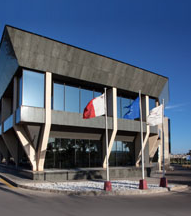Compliance
Malta Regulator Cracks Down On Pilatus Bank After Chairman's US Arrest

The Maltese financial regulator has seized control of a bank embroiled in an alleged sanctions-breaking scandal.
Malta’s financial regulator is restricting transactions by
Pilatus Bank,
which is registered in the island, following news that the
lender’s chairman has been arrested by US authorities for
allegedly helping to breach sanctions against Iran.
As
reported here yesterday, Ali Sadr Hasheminejad, 38, faces
charges concerning his alleged involvement in helping funnel
Iranian funds through the US financial system. Pilatus, which is
registered in Malta and has an office in London, has been
registered with the Malta
Financial Services Authority since 2013, and was granted a
licence in 2015.
The watchdog yesterday ordered that Sadr be immediately removed
from his position of bank director and from any other executive
positions he holds at Pilatus; it also suspended his voting
rights as a bank shareholder. Further, MFSA said Pilatus must not
allow “any banking transactions, including withdrawals or
deposits held with the bank by the shareholder, members of the
board of directors and senior management officials of the bank,
or related persons thereto, whether direct or indirect”.
The regulator said the bank must not move any of its assets
without the MFSA’s approval, adding that it is considering
further supervisory steps.
US authorities arrested Sadr, saying he took part in a scheme to
break US sanctions against Iran and funnelled more than $115
million paid under a Venezuelan construction contract via the US
financial system, federal prosecutors said. Prosecutors said
Sadr’s family controlled an Iranian conglomerate called Stratus
Group, which had international business operations and that led a
project to construct thousands of housing units in Venezuela. The
project stemmed from agreements that Iran and Venezuela entered
into in 2004 and 2005 calling for cooperation between the two
governments in constructing housing units in the South American
country.
The indictment said an Iranian company that Stratus incorporated
called Iranian International Housing Corporation entered into a
$476 million deal in 2006 with a Venezuelan state-owned energy
company to build 7,000 housing units. Sadr played the part of
trying to evade US anti-Iran sanctions by covering up the role of
Iran and Iranian parties in the payments sent via the US banking
system.
The bank has been hit by controversy. It had been locked in
a legal clash with the late Maltese journalist, Daphne Caruana
Galizia, over several articles she wrote that accused the bank
and Sadr of facilitating corrupt political activities and money
laundering. (The journalist was murdered last October in Malta
and investigations into her killing continue.) The bank said her
articles were false and defamatory. A former bank employee, Maria
Efimova, who was reportedly the main source for Caruana Galizia’s
accusations, handed herself in to Greek police this week. A
European arrest warrant was issued by the Maltese government in
response to a complaint of fraud by Pilatus Bank.
Media reported in February that the European Banking Authority
was conducting preliminary inquiries into Pilatus Bank following
requests by the European commission and the European parliament.
A report in the Guardian newspaper on 2 February said:
“Financial authorities at the EBA, which monitors the integrity
of the EU banking sector, have been asked by the European
parliament to examine whether Maltese financial authorities,
which have oversight of Pilatus and other banks, are fully
equipped and free from conflicts of interest in their work. The
EBA has also been asked to assess whether Pilatus should continue
to hold an EU licence or whether the European Central Bank or EBA
should intervene.” In the same report, a spokesperson for the
bank was quoted as saying: “Pilatus firmly believes in the rule
of law and stringent regulation, as this is paramount for the
integrity of the financial systems in which we operate. Our
Maltese licence was assessed and issued by the [Malta Financial
Services Authority] in full compliance with the laws after a
two-year process. Our robust compliance and governance meet the
highest European standards and is thoroughly and independently
audited.”
Authorities in certain jurisdictions are under pressure to crack
down on dirty money. In 2016, Singapore’s main regulator banned
BSI and Falcon Private Bank from operating in the city state,
citing serious shortcomings in AML controls linked to illicit
transactions in Malaysia.
US and European sanctions against Iran have seen a number of
banks get into trouble. France’s largest bank, BNP Paribas, was
fined $8.9 billion about two years ago for breaches of such
controls.
(Editor’s note: The involvement of US authorities in the
Pilatus Bank case is a potential game-changer amid controversy
that has swirled around Malta for over a year. The US has
demonstrated, as in the case of
global football organisation FIFA, that it is prepared to
chase after anyone who uses the US financial system as an alleged
conduit; what had been a European affair centred on a small
Mediterranean jurisdiction has “gone global”.)